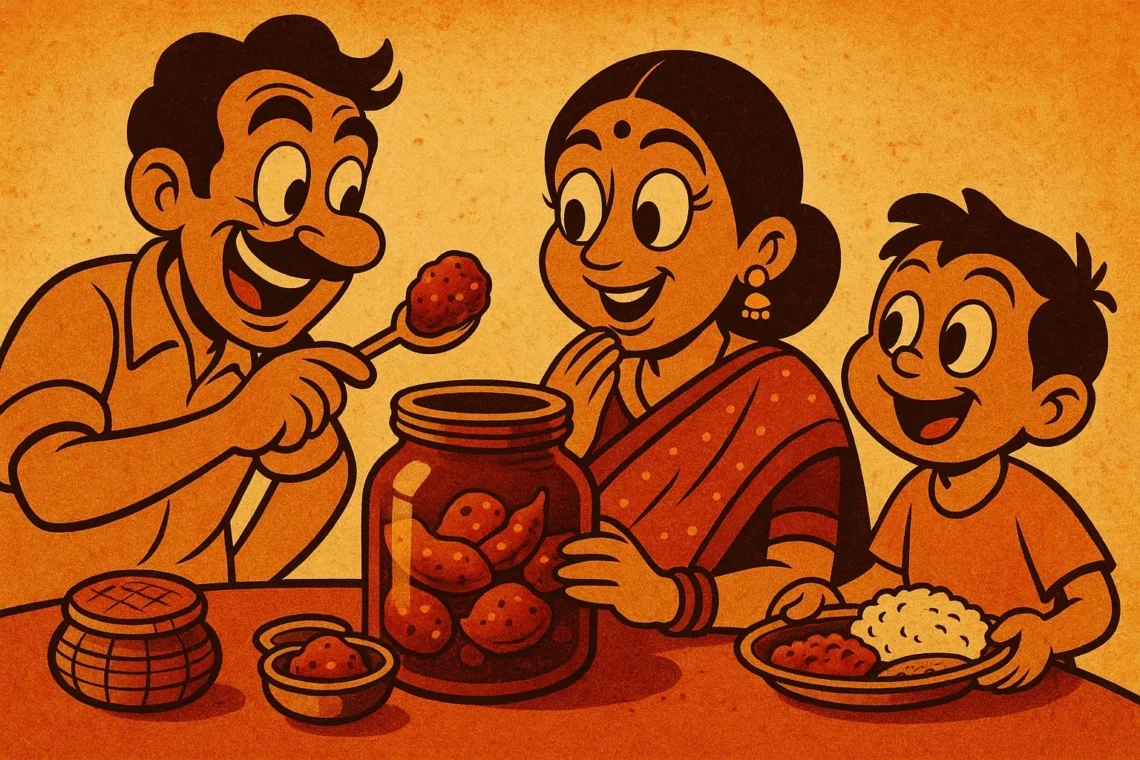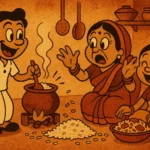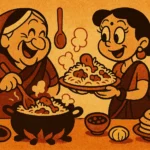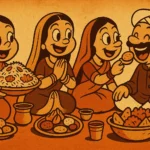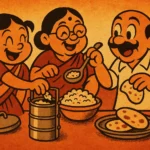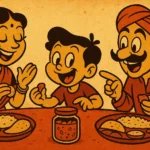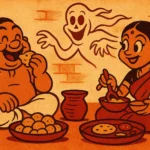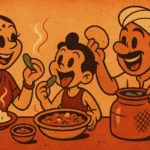When the Pickle Jar Is a Family Secret
Every family has that one thing they guard more closely than old jewelry or property papers. In ours, it was the pickle jar. Not because it was fancy or expensive, but because it held something more powerful than spice—it held stories. It was the one item in the kitchen that didn’t just belong to the home, but to the bloodline. Passed down, argued over, and always kept slightly out of reach, both literally and emotionally. Because when the pickle jar is a family secret, it’s never just about the achar.
Ours sat on the topmost shelf of the wooden cupboard, wrapped in a fraying cloth and placed inside an old steel dabba “for protection.” Protection from what, I never knew. Ants? Humidity? Curiosity? Possibly all three. It only came down on special days—festivals, wedding lunches, surprise visits from respected relatives, or when the regular food needed a rescue mission. And every time it was opened, a hush would fall. Like a relic was being unveiled. The scent would hit first—sharp, oily, laced with mustard seeds and dried red chilies. A scent that could make your mouth water and your eyes blink at the same time.
The Recipe That Was Never Written
The pickle, of course, was made by my grandmother. No written instructions. No measuring spoons. Just intuition, sunshine, and a terrifyingly precise hand. I once asked her how much salt she used. She said, “Jitna zaroori ho.” (As much as needed.) Which, for all practical purposes, meant: you’ll never be able to make it exactly right, so stop trying. She sun-dried the mangoes on an old bedsheet. Stirred the oil with a wooden ladle so long it looked like it belonged to a boat. And the final masala mix? A powdered mystery that she ground herself, one eye watching the proportions, the other watching to see if I was taking notes.
I was not. Because the secret was never in the ingredients. It was in the rhythm. The feel. The way she turned the pieces in the jar every morning for a week, like she was coaxing them into flavor. The way she sniffed the oil to judge if the jar was ready. The way she labeled nothing, but remembered everything.
One Jar, Many Stories
That one jar held more than mangoes. It held grudges, celebrations, whispered advice, and unspoken rules. The time someone tried to add extra chili powder and got publicly scolded. The time a jar cracked and the entire kitchen smelled of garlic for two days. The time my cousin sneaked some into a tiffin and the whole school corridor smelled like our lunch. Every jar had a backstory. Every spoonful had weight.
It was never served casually. You didn’t slap it onto your plate like ketchup. You asked for it. And you waited for someone older to say, “Okay, just a little.” It was portioned with respect. You didn’t waste it. You didn’t mix it into your rice like it was some mass-produced side. You ate it as it was meant to be eaten—one sharp, tongue-tingling bite at a time.
The Great Clone Failure
After my grandmother passed, everyone tried to replicate the pickle. My mother, my aunts, even an enthusiastic neighbor with a YouTube channel. The jars were made. The mangoes were dried. The oil was warmed. But something was always off. Too sour. Too oily. Not enough heat. Or worse—too perfect, too sterilized, like it had never seen the corner of a kitchen shelf or heard a family argument.
Eventually, we stopped trying to recreate it. Not because we gave up on the flavor, but because we realized: you can’t bottle presence. The pickle wasn’t just her recipe—it was her. Her patience, her voice, her way of tilting the jar at just the right angle to let the oil cover everything. The way she’d say “let it sit” when we asked if it was ready. Maybe that’s the real secret: some foods don’t just need ingredients. They need a person to remember them right.
Preserved in More Than Oil
Now, years later, I still keep a small jar of pickle in my fridge in Austin. It’s not homemade. It comes from a store, with a bright label and predictable heat. But when I open it, and that scent rises—mustard, chili, something sharp and nostalgic—I remember everything. Her hands. The rustling of the plastic sheet where the mangoes dried. The hum of the fan. The quiet power of a recipe never written down, only passed on.
So yes, the pickle jar was a family secret. But not because of what went in. Because of what it meant. A reminder that flavor is sometimes memory. That love can be preserved. And that the best things in life come in glass jars, stored high on a shelf, waiting for the right moment to be opened.
Born in Mumbai, now stir-frying feelings in Texas. Writes about food, memory, and the messy magic in between — mostly to stay hungry, sometimes just to stay sane.

